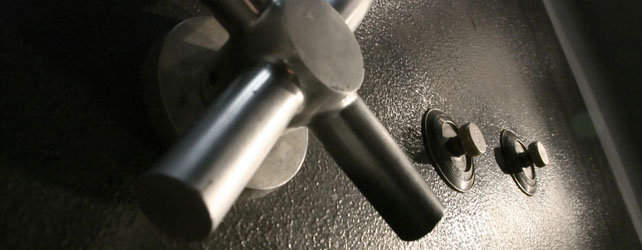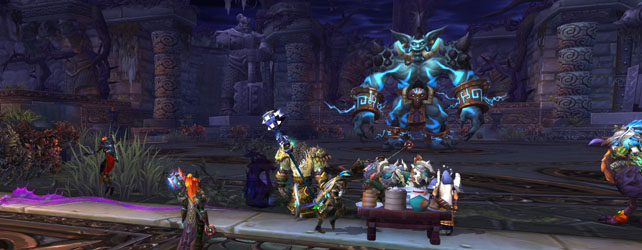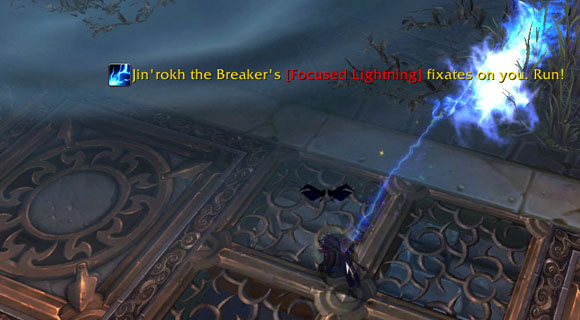I have watched my Vancouver Canucks rise and fall over the past seasons. I watched as they routinely got stomped many years ago to the powerhouse that came so close to winning it all in 2010. This city needs the cup so badly.
When a team is in a full rebuild mode, they trade out their remaining valuable assets to try and get younger in order to prepare for the future.
When a team is in playoffs mode, they look for the few pieces to help them get the championship.
Like sports teams, a guild’s recruiting strategy will often gradually shift from time to time depending on their current goals and needs. If you convert the guild’s raiding progression into different stages, you can classify your guild’s recruiting strategy to better align with the guild’s goals.
Stage 1: Early game, normal
Full rebuilding year. It’s time to start planning for the future. They know they’re not going to be in the running for a few years. Time to go young and select players with high potential. Give them the experience they need in order to flourish. Edmonton is a good example of this a few years ago. Hall, Nugent-Hopkins, and Yakupov are slated to give my team a run for it’s money in the next few years.
This is the stage most new guilds are at especially at the onset of a new expansion with a depleted or non-completed roster. You haven’t finalized your tanks, DPS, healers, or combination thereof. Your leaders will recruit anyone that can make your times and have the minimum gear levels needed to make a dent in the raids. They don’t have the necessary raiding experience? That’s okay, they have the room to grow! They can learn with the rest of the players. Raid experience is going to vary wildly from the top end down to the bottom. You’ll even see this in World of Logs as the spread from 1st place to 17th is going to be a huge gap. Maybe it’s their first time in a structured and organized raid environment. Might not see many (or any) players with legitimate heroic raid level experience.
Most of their gear is going to consist of quest blues, dungeon blues, or crafted gear. If they’re showing initiative, they’ll have worked on maxing out their professions along with acquiring valor level gear. Of course, on the other end of the spectrum, they could just be in a mash of greens and epics with reforging that doesn’t entirely make sense.
But whatever right? They can commit to the posted raid times and that’s all that matters. The goal here is to actually get into the raid instance and start wiping.
This is the (re)build stage. My guild went through this in Firelands after a split. I knew that competing in Firelands was not going to happen so we planned for the long game instead.
Stage 2: Late game, normal
The team is starting to play well together. Players are getting used to each other and their tendencies. The deals being made now are for classes or specs that are still lacking. Maybe the team’s missing a consistent performing goaltender or needs a few big bodies on the blue line. They’re going to passover that high rated goal scorer and address their needs specifically. Washington has great franchise players with Ovechkin, Green, and Backstrom but the team is looking horrible so far this shortened season. They need help on the backend.
At this point, recruits are expected to have a certain level of gear and experience. Your guild is working on the late stages of an instance. Maybe you’re working on Elegon or Will of the Emperor. Or else you’re wiping to the Sha of Fear or putting shots in on Empress and Amber Shaper. The players have farmed the early half of instances and can play their responsibilities without too much guidance. They understand the challenges and mechanics of the early set of bosses and can pick up new obstacles within a couple wipes of seeing it.
These recruits shouldn’t be rocking anymore blue gear (or at most 1 or 2 pieces because they’ve gotten unlucky with drops). They’ve played the game for at least over an expansion and understand the struggles that a raid group is going to face. When looking at players like this, as a GM you want to ask yourself if these players are going to be able to help you get over that “hump”. If there’s any doubts at all, it should be a decline. You can take a chance on one or two “project” players who are a little behind in some area (gear or experience), but a certain time limit needs to be set. Either they make it or they don’t.
I firmly believe there each player in WoW has a skill cap and each boss has a minimum level needed to get through it. That skill gap and floor rises with each new progression boss and players absolutely must rise with it.
The talent is slowly coming together. You’re outside of the playoff bubble and looking in. But more importantly, you know it’s within reach.
Stage 3: Early game, heroics
Now you’re in the playoffs. The team has a great group of players. Each one knows what their roles are and where they fit in the system. In the event of injuries, the call ups are there to help. Detroit is on a 21 playoff appearance streak is a great example of this. They’re expected to make it 22 this season. Even though the team isn’t always making it to the conference championships, they’re a proven playoff contender.
Your roster is largely stable. Everyone that’s signed on follows the guild philosophies and are all excellent fits for the guild. There’s a couple of pieces missing. Maybe you’re missing a specific class that you really think will augment your raid group. Now you’re selectively recruiting talent that’s definitely geared and experienced. As much as you want to give the blue geared player a chance, you know that your “window” is closing. Maybe a certain patch is about to drop soon and you want to secure as many progression kills as possible. If you’re lucky, you can recruit “up” and snag a player that’s coming from a guild which is more progressed. You should have a couple of heroic modes under the proverbial guild belt. You may not be actively open recruiting but you’re still scouting for key piece players to outright replace the people who have hit their skill cap and are at a level where they just can’t get it done.
Players are willing to put in the time and the wipes as long as they see some form of progression. It’s not uncommon to wipe anywhere from 30 to 100+ times. They know their classes innately. They can play their classes intuitively and can slip into any spec with ease. There is no Arcane Mage or Fire Mage, there is only a Mage who picks the best spec and talents for the job. Just because they have their favourites doesn’t mean they’re incapable of doing anything else.
You are a consistent playoff team. You’ll always hit top 16 and are capable of scoring upsets.
Stage 4: Late game, heroics
You’ve hit the dream team. You’re happy with them. If no one applied for the next year, you’d be okay with it as long as the main nucleus of the guild stays together. Unfortunately, real life always has plans. Things will always change from year to year. Now you’re recruiting in advance because you can tell someone’s losing interest in the game or they have other responsibilities preventing them from maintaining that high raid standard you set in place. Nothing is forever. You still have a powerful group of individuals but you’re in headhunting mode. Recruiting is going to be at an all time low because you can’t justify pulling new players in. They’re not going to be seeing much raid time (unless they’re okay with playing second string and backing up).
Your warrior is quitting the game because he’s getting married. Someone from the bench gets promoted or you start looking elsewhere for a player that’s heavily geared with multiple heroic kills. They can seamlessly step in and take over for the guy that’s going out even though they’ll never quite replace the departing personality.
At this stage, you’re guild is tacking the hardest bosses in the game or pursuing specific raid achievements for the meta.
You are heavily favoured to win the championship and either come really close to doing it or manage to do it.
Recruiting is a tough and draining job. Make it easier on yourself and narrow down exactly what you’re looking for. What does your guild need? What players are it missing? Then head to various community sites and start tracking them down. The best success I’ve had was the WoW official forums and word of mouth via the raid finder or simple referrals.
Be very careful with referrals. Put stock in the recommendations that you’re given, but look at that player independently and objectively. I’ve been offered referrals that don’t pan out and some referrals who turned out great. It’s not uncommon for people to say that they want to play with their friends even though they might not consciously think so. Stacking a raid with 10 people who know each other really well can also put you in an uncomfortable position where the group has an amazing amount of leverage. If one person doesn’t get their way, they may subtly influence their friends to come to their aid and boycott a raid night. The GM hat must always come first before the friend hat.
One of these days, I want to try a football analogy. I just wish I understood more of the game and the little nuances so I can pull it off well :(!




